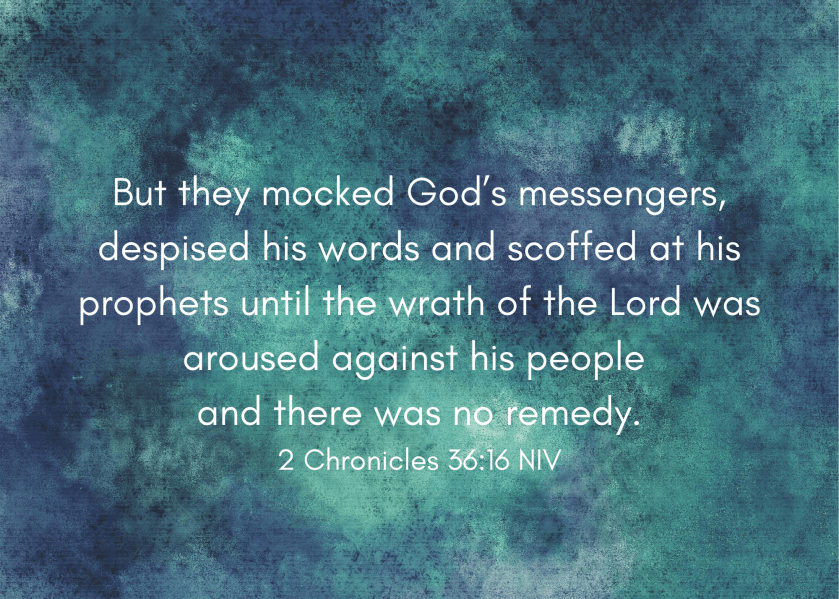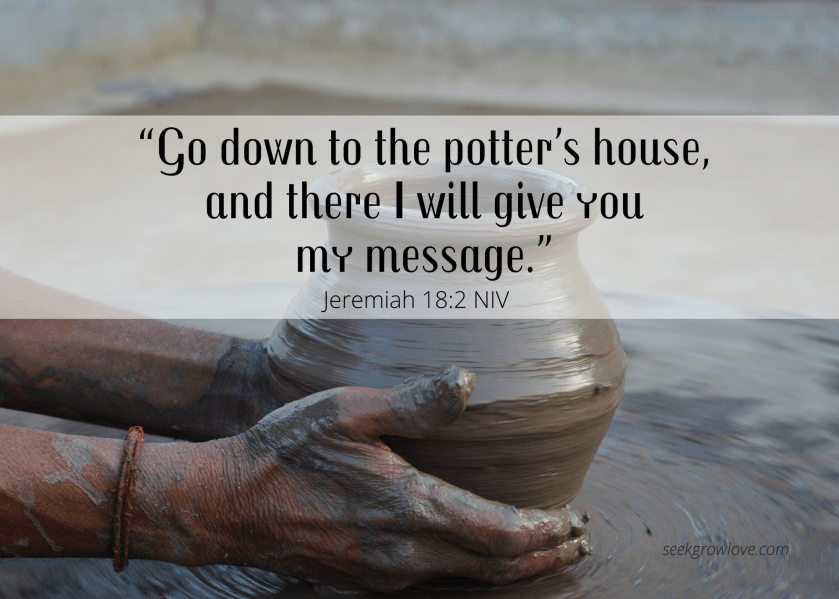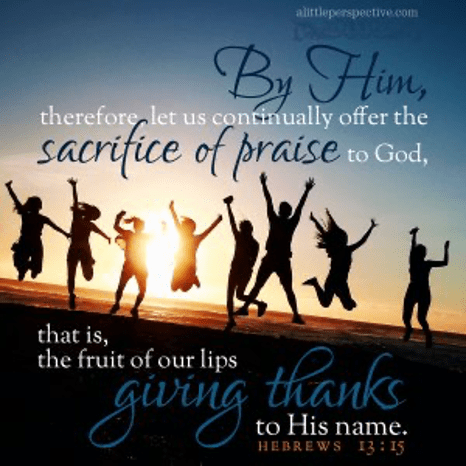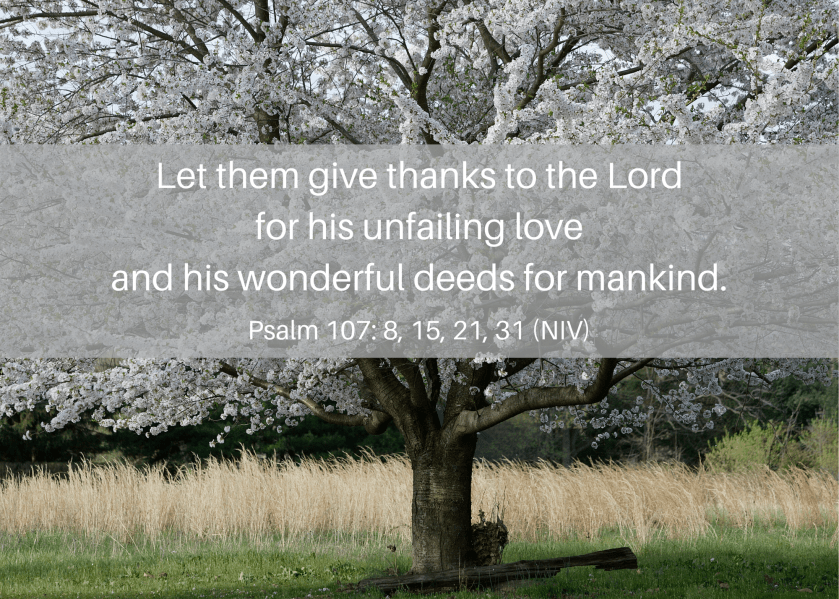
Devotion by Jeremy Martin (TN)
In our Ex 15: 1-20 reading today, we find the Israelites flushed with joy (and probably a bit surprised and amazed) at their very recent miraculous escape from Pharoah’s army through the Red Sea. The song that Moses and the Israelites sang, which is beautiful, highlights their joyous wonder and details the miraculous hand of God in their redemption. Then they walked for 3 days to the well of Marah (Ex 15:22-27) and began a pattern which would repeat pretty regularly throughout the book: complaining and whining. Kind of like us, right? How many times in your life has God done something miraculous and then within days or weeks you’ve completely forgotten about it and moved on with your life? It sounds painfully familiar because at heart most of us are exactly the same. God will do something utterly and completely miraculous, and we celebrate it and praise Him, and then forget about it and are looking for our next blessing. Why are we like that? How can we act differently? (There are some practical answers towards the end, if you want to skip down)
So after God once again miraculously cared for them by giving them water to drink, predictably, the sons of Israel once more started grumbling (Ex 16:2). God then began to provide for His people, and did so for 40 years (Ex 16:35) from this point, until they came to the promised land. In the morning he gave them manna, a miraculous bread from heaven, and in the evening he gave them meat (in the form of quail) (Ex 16:13-14). During these 40 years of provision, the Israelites where physically and spiritually trained in the concept and keeping of the Sabbath (Ex 16:22-29). There is a neat description of the texture and taste of manna in Ex 16:31.
I have 2 very large dogs (Bo and Luke): they’re very sweet, very large, and very pushy. I’ve had them now for about 7 years, they’re good boys (mostly). I bring them up only to make a point. Every day I’ve had them, I have fed them the exact same dog food, in the exact same portions, twice a day. Do you know how they react? They LOVE it. Every single time, it’s like they just won the lottery, like they got the family pass to Disneyland and it’s Christmas morning, they are SO excited. Bo does standing jumps up in the air about 4′ high from the moment I go to the back to get the food until the moment I put it down for them, and Luke wags his entire backside so hard that he’ll knock you over if you get in the way (I have this on video, it happens daily). They are SO happy and just excited and grateful to get that same exact dog food, in that same exact bowl, at the same time daily. Then when they are done, they come lick my face happily (and for a bit longer than I’m usually comfortable with) while wagging their whole bodies to let me know how much they appreciated the food.
So what about you? When God gives you your daily provision, every day, do you show Him how grateful you are? Do you do standing jumps 4′ in the air and wag your whole bottom? Do you then go and lick God’s face repeatedly in thanks (figuratively, of course)? Think about it. Most of us would be more along the lines of the ancient Israelites “Ugh, manna and quail AGAIN??!“, while completely overlooking the fact that we have been provided for. Our creator, the God of Abraham, Isaac, Jacob, and you gives us blessings every day. I urge you, as I urge myself; jump for joy, wag your tail, kiss the hand of the Almighty who has given us such abundant blessings undeservedly.
PRACTICAL STEPS
- Pray when you wake up. Gush. Get on your hands and knees and thank God that you woke up today, that He has seen fit to grant you another day of life.
- Look at your blessings, consider how ALL of them come from the hand of God (Ps 24:1)
- Look at the sky in the morning, and praise God that He’s given us, His children, such a beautiful playground to live in.
- Breathe in, Breathe out. That is the breath of life that God put inside you, thank Him for it.
- Love the people you meet, God created them too, they are your brother/sister and it pleases Him when you acknowledge this.
- When you struggle, thank God for refining you and strengthening your spirit. Ask for his help if you are failing.
- When you eat anything, thank God.
- When you bathe, thank God for the cleansing water. Ask Him to cleanse your heart as well.
- When you go to bed, thank God for the day He gave you, and you’re still alive. Ask for forgiveness if you’ve failed in any way to please Him, and then wake up in the morning and do better.
- Glorify God at all times, in everything you do, in every thought you have, in every action you take. Diminish your “self” and enlarge God’s spirit within you.
I’ve went on a bit long about our OT reading this morning, but I would be absolutely remiss if I didn’t point out a couple things in our Matt 15 reading. When the pharisees confront Jesus about some legalistic violations, Jesus calls them out (Matt 15:3) and points out the difference between honoring God with your heart and just “going through the motions”. It’s important to note that the traditions of men are not necessarily the commandments of God, we need to honor God and love him in our hearts. If we’re not doing any of the things we do daily as rituals out of pure love for God, then we too are missing the whole point.
I have a friend who believes firmly (and I don’t disagree) that “unconditional love towards the Father” is in itself perfect religion lived properly. I humbly suggest that some of the daily rituals suggested above may help us to refocus our attention and gratitude to where it belongs. May God bless you and lead you, and touch your heart with His spirit.
Reflection Questions:
- Do you (figuratively) wag your tail and lick the hand that fed you, every time you get food? Why or why not?
- God physically and spiritually trained his children the Israelites to keep the sabbath every week for 40 years. Do you think it was important to him?
- Should we keep the Sabbath nowadays? No cheating by repeating whatever you were told by someone else: look it up in scripture, use your own words to answer, and show your work.
Prayer:
Father God, THANK YOU! You have provided for my every need, every day, and given me far beyond what was needed. I have not deserved it, I have not earned it, but you have been a gracious and loving God to me anyway. Lord God please forgive me, help me to love you with that same fierce love that you have loved me with since I was born, and teach me the depths of your awesome love. Thank you for life, and breath, and all things. Please guide me and be with me, in Jesus’ name, Amen.














